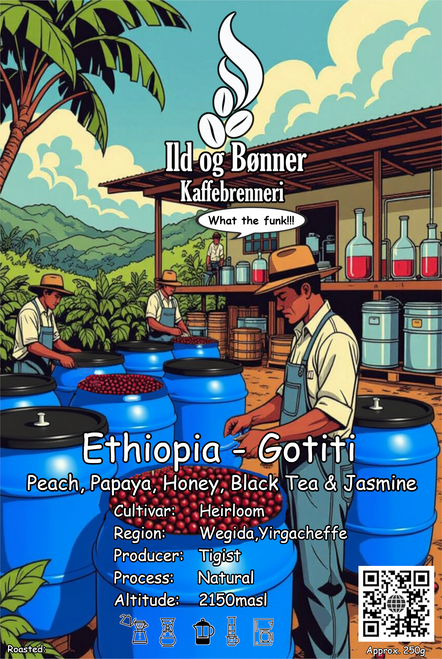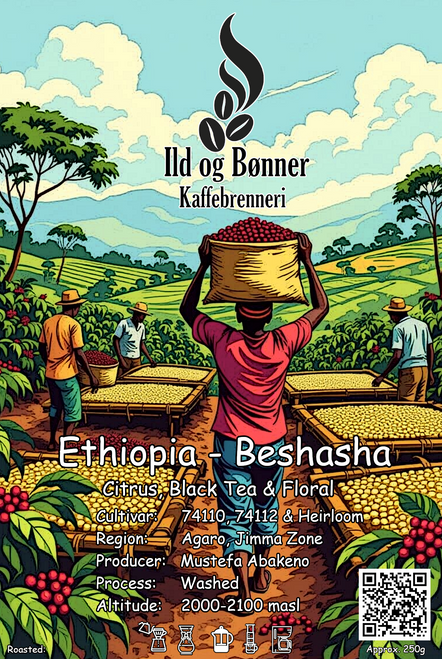Plum, Caramel & Almond
Cultivar: Caturra & Red Catuai
Region: Dipilto
Producer: Tierra Linda
Process: Washed
Altitude: 1200masl
Linda Vista is sourced from two neighbouring farms in the Las Manos community of Dipilto, Nueva Segovia, Nicaragua. Finca Santa Isabel, family-run for more than seventy years, sits at 1,220 m a.s.l. ; Finca Mirjam, acquired in 2025, lies just west at 1,252 m a.s.l. Across eighteen hectares of coffee the producer cultivates Caturra, Catuai, Parainema and Catimor beneath a mixed canopy of Inga, native hardwoods, erythrina, banana plants and fruit trees, keeping thirty to fifty per cent shade throughout the plots and protecting fifteen hectares of untouched forest on Santa Isabel. Two soil fertiliser applications and three foliar feeds are scheduled each year, combining low-impact synthetic inputs with on-farm compost and coffee-pulp biofertiliser, while formative pruning and shade regulation sustain plant health. A permanent team of twelve, led by an administrator and backed by a technical adviser, managed a harvest of around two hundred quintals of parchment this season.
Harvested cherries are hand-selected, floated and rested for eighteen hours before processing. At Santa Isabel a traditional washed protocol follows: depulping, fermentation in tiled tanks for twenty-four to thirty-six hours, thorough washing and transfer to the dry mill. Mirjam lacks its own wet mill, so cherries travel to Finca Bethania—another family property—where washed, honey, natural and anaerobic natural preparations are carried out under the same strict sorting, bag or barrel fermentation and quality-control routines. All wet-processed parchment then moves to the Cafetos de Segovia dry mill for conditioned storage, hulling, commercial grading and export. Both wet mills minimise water use and channel effluent to lined oxidation ponds, safeguarding local streams.
Integrated pest management combines continuous field scouting, canopy and tissue management, broca traps and preventive spraying with low-impact products. No other crops are grown. Climate variability has begun to show on Santa Isabel through increased “ojo de gallo” incidence and uneven flowering; Mirjam, still newly incorporated, has mainly felt erratic rainfall that stresses trees and delays bloom. Together, the farms deliver a carefully traced, fully shade-grown coffee that balances long-held family stewardship with modern, quality-driven processing.







